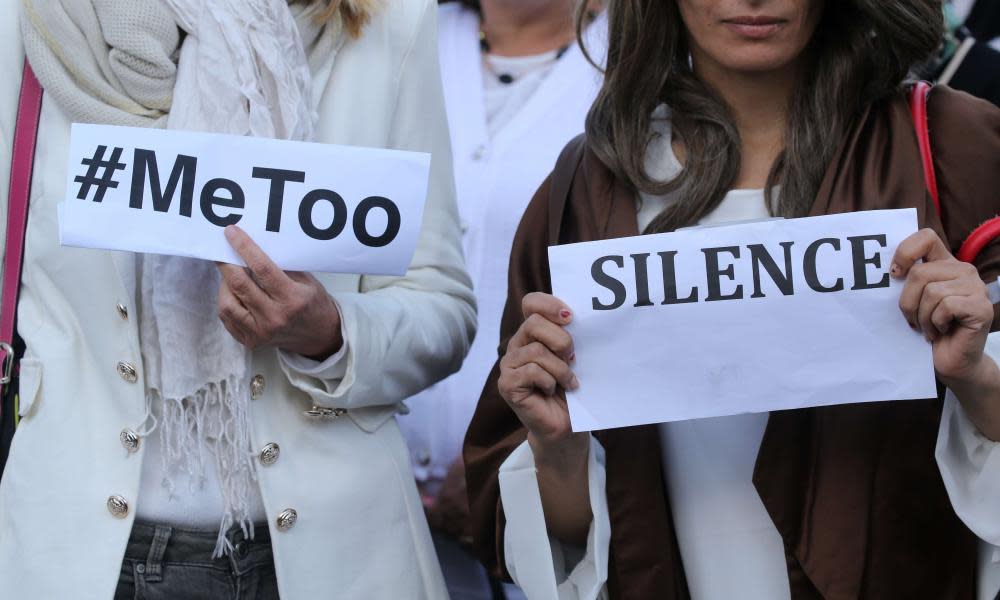Screen Australia creates sexual harassment code of conduct tied to public funding

Government funding should be available only to film and TV companies that adhere to a code of practice on sexual harassment, Screen Australia has said.
The peak film and TV body announced the development of the code as industry professionals convened in Sydney to address systemic sexual harassment and abuse in the Australian screen industry. The forum was also positioned as a local response to the #metoo movement that has swept across the world after allegations of systemic sexual harassment and assault were levelled against film producer Harvey Weinstein.
Participants in the forum, spearheaded by Women in Film and Television NSW, told story after story of coming up against social and structural roadblocks in addressing sexual harassment, and expressed concerns about the difficulty of widespread, long-term cultural change. Audience members recounted losing work, education opportunities and their livelihoods after making complaints of sexual harassment, particularly against people in a position of power.
Announcing the code in her opening address, the chief operating officer of Screen Australia, Fiona Cameron, reflected on the “devastating” past two months of revelations. The code would set out the rights and responsibilities of employees and employers, and would be widely available in a format that could be easily read, understood and put into practice, Cameron said.
She said she hoped government funding for screen projects would eventually be available only to those workplaces that “proactively” dealt with discrimination, harassment and abuse.
“Power, influence and bad behaviour unchecked all result in the culture we now stare down,” she said. “The culture of the alpha male, the protected alpha male, who is revered on the big and small screen and behind the screen and whose actions are beyond reproach, beyond repudiation and beyond badly behaved – for people in the know, this is how it has been forever ... We have a once-in-a-generation opportunity to make a difference.”
The director of the For Film’s Sake festival, Sophie Mathisen, said she felt there was frustration about the panellists’ focus on the need for “change from the top”.
“I think this is crucial, but incredibly difficult to enact in the screen industries as it’s industrially segregated with many different ‘tops’,” Mathisen told Guardian Australia. “We need to understand how these behaviours have been perpetrated over many decades.”
She said the discussion in the forum of the National Rugby League as an example of an industry that had facilitated positive change towards women in response to sexual harassment cases was problematic because in that case there had been a lack of female input.
“Such an example highlights the industrial root to the cultural problem of sexual harassment. As with the NRL, the problem is with teams of men setting the cultural parameters for their own behaviour without female input. What we know is that the film industry does in fact exist much like football – teams of men working almost exclusively with other men, and therein lies the issue. How do you encourage gender equity?”
Panellists devoted much time to clarifying the rights of victims of sexual harassment under the law, both at work and in work-adjacent contexts, such as auditions and industry pitch sessions.
The sex discrimination commissioner, Kate Jenkins, addressed the forum via videolink, acknowledging the negative career impacts that victims of sexual harassment face if they speak up about their experiences. This pressure often came from internal hierarchies, she said. “You don’t need to be Harvey Weinstein to slow someone’s career, you just need to be a manager,” Jenkins said.
The Human Rights Commission would be collecting data on sexual harassment in workplaces, the forum heard.
Discussions also took in the broader context of bullying in the workplace. Zoe Angus from the Media, Entertainment and Arts Alliance said 62% of actors and technicians working in Australian performing arts had experienced bullying, and comparable numbers had witnessed it.
More robust structures were needed around harassment and consent that did not focus only on performing artists in particular circumstances, Angus said. “Consent and boundaries needs to be part of the conversation at the beginning, not just related to sex scenes and nudity but rather the full gamut of physical behaviour.”

 Yahoo News
Yahoo News 
